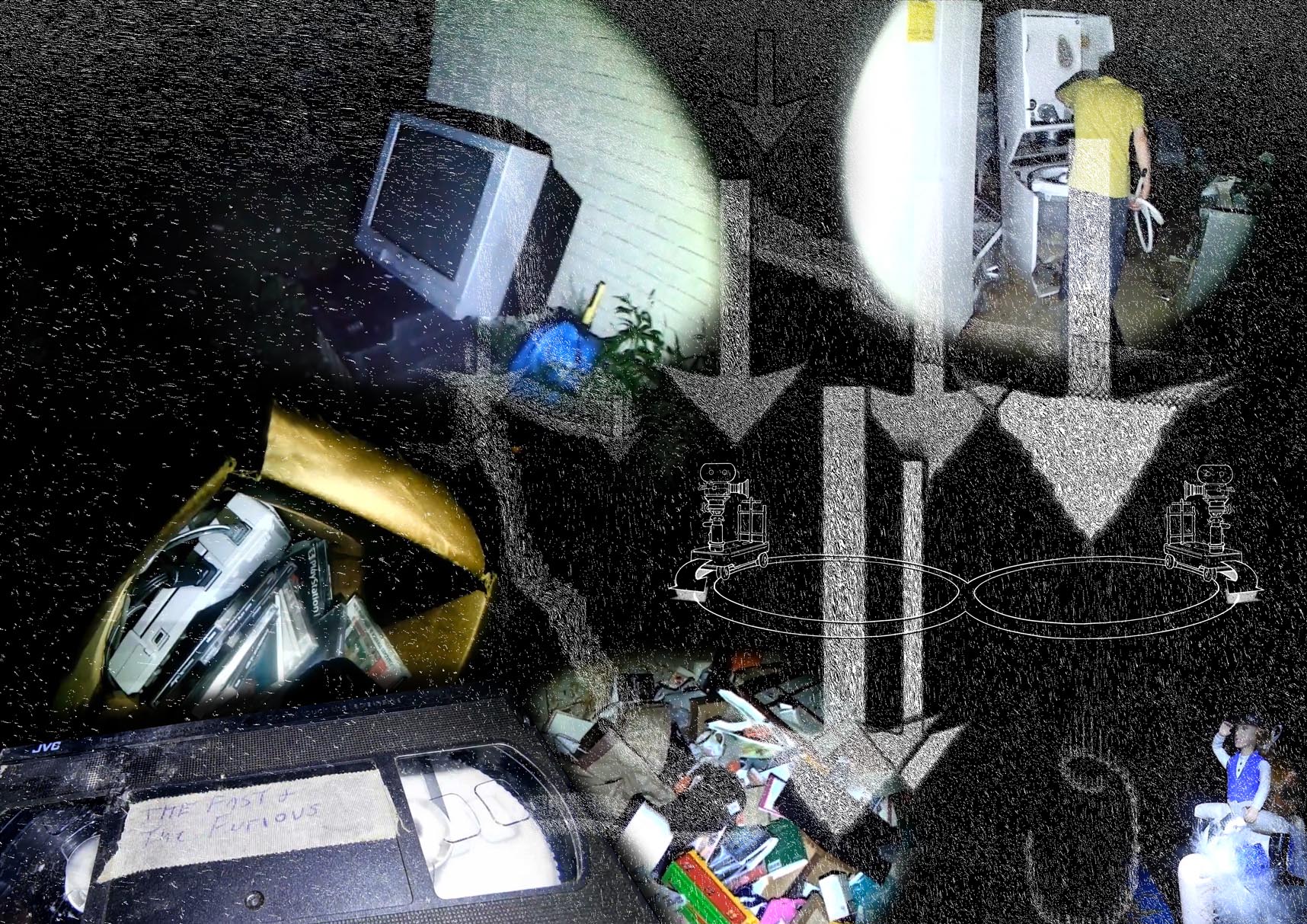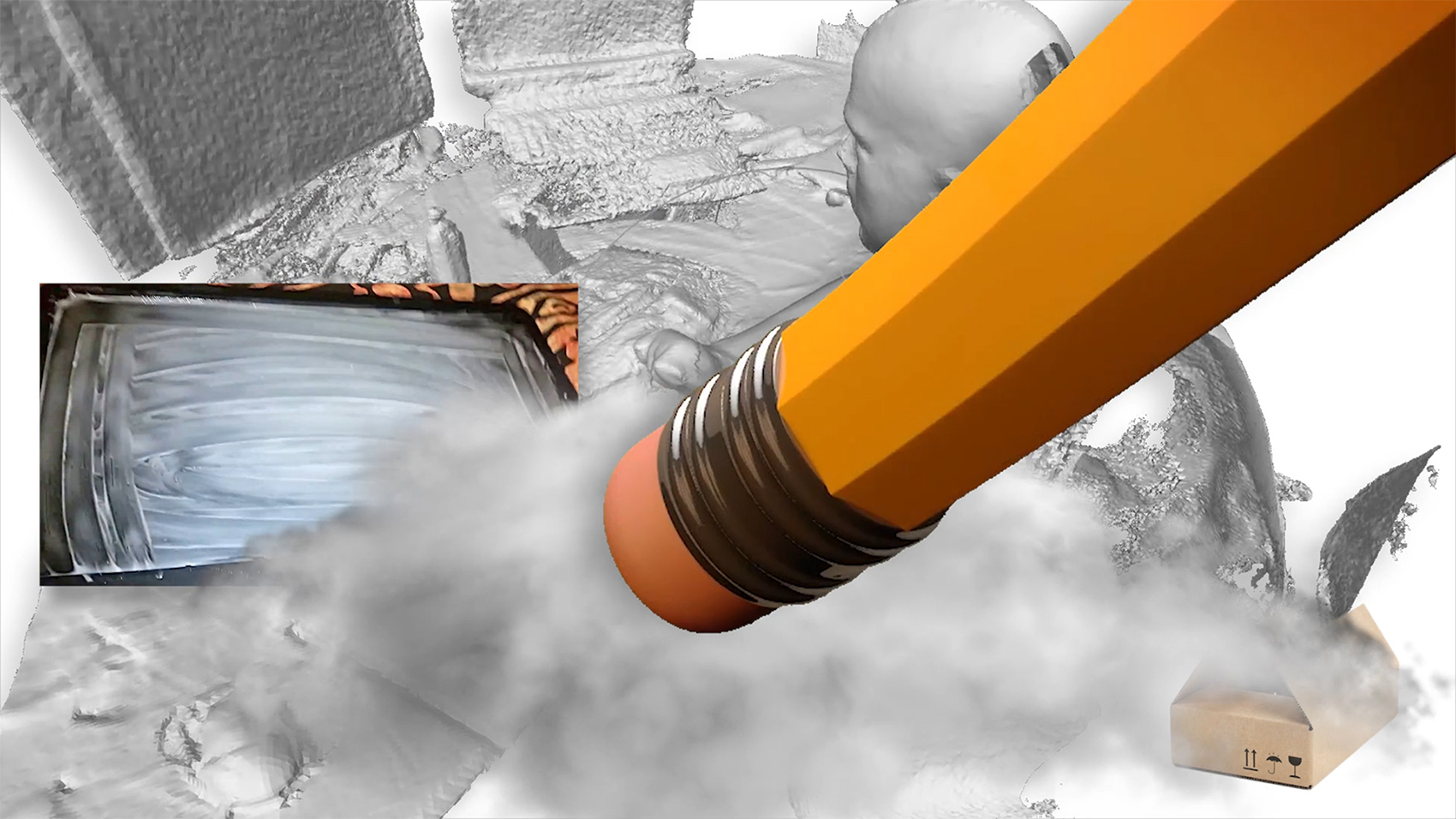Content Anxiety
Flattened, Crushed, Pressed, Compressed, Squashed, Smuggled, Confiscated, Censored, Banned
- some of my recent search terms. Finding what you’re looking for on the internet has become so
easy. Finding what you’re not looking for, however, has become a fine art.
Everyone has their own library nowadays. Holiday pictures, multi-version selfies, autosaved
memes, text messages, empty drafts, long-gone calendar invites, step counts, voice notes,
recently deleted files waiting in limbo. In my work I’m interested in plumbing the depths of this
exponentially expanding world of forgotten versions, in a process I think of as an archaeology of
the new.
Built on a utopian promise, the internet was made for everyone. Over 30 years on and it has grown
beyond its creators’ wildest imaginings; everything is available to everyone, all of the time. This
abundance of content, uploaded casually or with purpose, forms the context and material
underpinning of the work I make. Sifting through tab upon tab, page upon page, website upon
website like some kind of digital gold prospector, has become a habit of mine, even an obsession.
In 2020 I became fixated on a website I came across which archives images uploaded to Ebay.
Where do these functional images go once they’ve fulfilled their purpose? What we find is an
online mausoleum for the low-resolution, home-made snaps of once-treasured-now-unwanted
goods, clumsily piled ‘job-lots’ of objects and suits of armour propped up in new-build
conservatories. As the saying goes, one person’s trash is another’s treasure, and these greedy
downloads joined the over 4,000 JPG, TIFF, PNG, SVG and GIF files I’ve gathered this year alone.
As our reality becomes increasingly connected, recorded and tagged, everything is within touching
distance. Search algorithms grow more sophisticated, predicting what you want and displaying it
on loop before your eyes at every opportunity. With these ever-changing parameters, orchestrating
situations of happy accident and productive misinterpretation becomes more and more
challenging. This circumnavigation or mistreatment of algorithms and software - the endeavour to
make room for improvisation, aggression and urgency in the digital workspace - is at the crux of
how I try to operate.


An old tutor of mine once said “I always think of everything on the internet as being free” -
something that older generations take for granted, having seen the birth, growth and mutation of
the world wide web from its humble beginnings to now. Younger generations, though, who built
their fledgling identities in relation to sites like Facebook or Myspace, may have a different outlook.
Times have changed yet again with the COVID-19 pandemic, which has seen all physical galleries
and museums close in the UK, and forced artists’ work online, or into total hibernation. Controversy
and activism over artists’ pay have seen a surge in the past few years, and the shift online could
prove a pivotal moment in how digital objects, data and labour are valued, owned and shared.
We appear to be at a turning point in how we see internet as a context, and how we place
monetary value on the online matter that sits within it. What was seen as free, invisible or informal
labour appears to be having a dramatic and irreversible shift. How can the internet remain a place
of unrestricted sharing, access and creativity, whilst valuing and respecting the work, labour and
rights of those who use it? Will the infinitely expanding online landscape become ever more
segregated, quantified and controlled, and if so will subterranean digging become the only viable
route for artists to tread new territory? 
Duncan Poulton is a London-based artist working in an expanded form of collage, realised through
digital video and image assemblage. His work has recently been shown at Ars Electronica;
Coventry Biennial; QUAD, Derby; OUTPOST, Norwich; MIT Museum,
Massachusetts; Eastside Projects, Birmingham; arebyte, London; CICA Museum, South Korea;
and Transmediale, Berlin. He is a 2020 participant in the Syllabus, an alternative learning
programme led by Wysing Arts Centre and arts venues across England.
duncanpoulton.com
@duncanpoulton
Duncan's work appears in the Autumn/Winter 2020 edition of the Sluice magazine. The magazine is available to buy in both print and digital, here.
